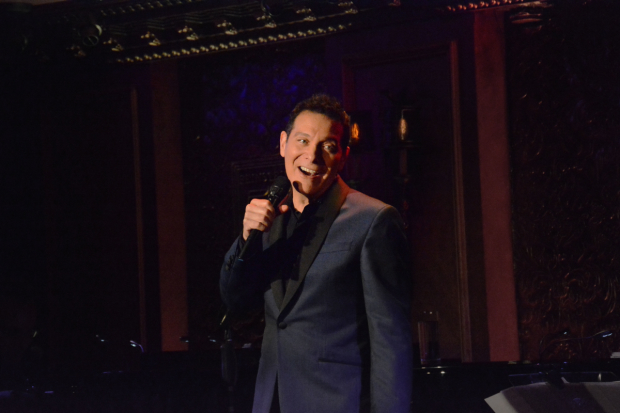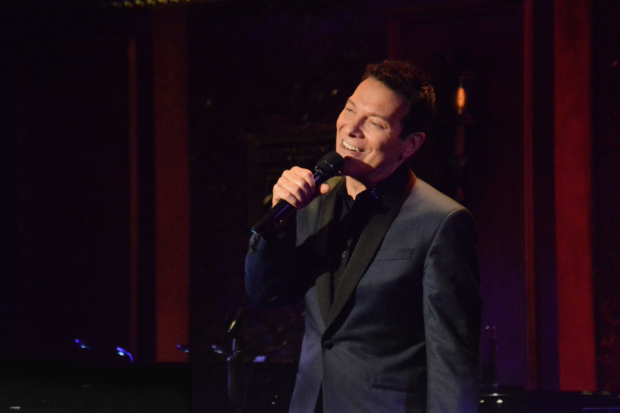Michael Feinstein's Showstoppers

(photo provided by Feinstein's/54 Below)
In Showstoppers, his new cabaret at his namesake nightclub Feinstein's/54 Below, Michael Feinstein promises an evening of "surefire showstopping songs that made Broadway great…from then and now," featuring hits by the likes of Rodgers and Hammerstein, Sondheim, "and even some contemporary composers and lyricists of today."
Feinstein, who's been gracing stages all over the country for decades, knows what his audience wants to see and hear. This concert is comfort food for his regulars, whose recognition of and devotion to the pantheon of music known as the Great American Songbook is as passionate as his own. But promising a wide range of songs, "from then and now," is a bit of a misleading descriptor since Showstoppers stops the show at 1978.
Early in the 80-minute performance, Feinstein defines the evening's overarching theme. "Showstopper," he notes, isn't just eleven-o'clock numbers that bring down the house, but any song that has led its performer or writer to a long-lasting career because of it.
That certainly explains the inclusion of Kurt Weill and Ira Gershwin's "Tschaikowsky (and Other Russians)" from Lady in the Dark, a legendary patter song that rhymes the names of 50 Russian composers and, upon its 1941 debut, made a then 30-year-old Danny Kaye a household name. It also explains the presence of a song like "Losing My Mind," a legendary torch song first performed in 1971 by Dorothy Collins in Follies that has since become a cabaret staple (and was a top 10 hit for Liza Minnelli in 1989).
But the show often deviates from the promised path of iconic Broadway numbers from history. Louis Jordan's 1944 jazz standard "Is You Is or Is You Ain't My Baby," is also included on the bill, its presence justified by the fact that it turned co-songwriter Billy Austin, a janitor, into a veritable one-hit wonder. Feinstein's singing the iconic rock-and-roll tune "Great Balls of Fire," on the other hand, remains unexplained. Continuing the theme of standard showstoppers outside the Broadway pantheon, special guest Julia Goodwin, an up-and-coming chanteuse, delivers more pleasant than passionate renditions of the perennial "Stormy Weather," and the lesser-known "My Mama Says No No."
"More pleasant than passionate" is a good way of describing Feinstein here, as well. His knowledge of the music is unimpeachable, his between-song banter knowledgeable and mischievous. But on the whole, Showstoppers lacks both spontaneity and sincerity. While his archness as a performer works best with a song like "Tschaikowsky," the only "wow" of the evening, as well as the tongue-twisting title number from Cole Porter's Can-Can, it cuts him off at the pass when it comes to the other selections. A tribute to the recently departed Barbara Cook, in the form of a spoken acknowledgement and a Music Man medley, is missing the crucial thing that makes homages like that memorable: genuine, off-the-cuff emotion. The show feels overly rehearsed, and the deviation in song selection (from Broadway to standards) not particularly well thought out.
If you're going to do an evening that surveys Broadway material from "then and now" in 2017, the music should reflect the "now." The most recent tune on Feinstein's set list, "Fifty Percent" from the musical Ballroom, was first introduced in 1978. There are plenty of showstoppers that have been written since, and it would have been nice to see a keeper of the American Songbook identify which recent tunes will find its way into history.

(photo provided by Feinstein's/54 Below)










